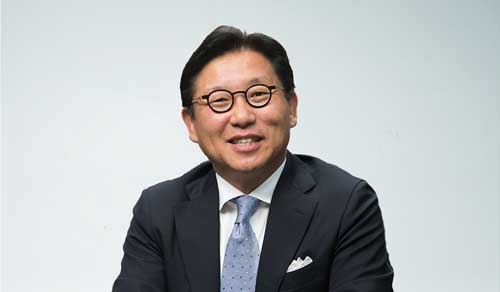Key takeaways
- Under the new IFRS 17 and K-ICS frameworks, insurers in Korea are adopting more advanced capital management strategies and exploring diverse capital solutions to optimize their balance sheets.
- Product innovation, identified as a top challenge by over 90% of insurers, is expected to drive growth, with increased collaboration between insurers and reinsurers.
- Insurers have expressed profitability concerns over new products as margins thin under competitive pressures.
Under the new IFRS 17 and K-ICS frameworks, insurers in Korea are adopting more advanced capital management strategies and exploring diverse capital solutions to optimize their balance sheets. Product innovation, identified as a top challenge by over 90% of insurers, is expected to drive growth, with increased collaboration between insurers and reinsurers. Asia Insurance Review spoke with RGA Korea’s Michael Shin to find out more.
In 2024, the Korean insurance industry regained its growth momentum following a challenging 2023. Total premium income for the first half of 2024 reached over KRW114tn ($86bn), marking a year-over-year increase of approximately 4% from the same period in 2023.
RGA Korea CEO Michael Shin, who is also senior vice president for Japan and chief marketing officer for Asia, said that the growth was primarily driven by robust sales of limited pay whole life insurance, which attracted customers with higher returns at maturity in the life insurance sector.
In the non-life insurance sector, health and accident insurance led market growth, with accident and health sales outpacing life insurance sales, Mr. Shin said.
“On the downside, market competition has intensified as all insurance companies are focused on expanding protection products to secure contractual service margins (CSM) under the IFRS 17 and K-ICS regimes. Insurers have expressed profitability concerns over new products as margins thin under competitive pressures,” he said.
Biggest demands and market trends
According to the Korean Statistical Information Service, by 2025, South Korea is projected to become a ‘super-aged society’ - with over 20% of its population being 65 or older.
As the ageing population grows rapidly, the demand for life and health insurance among seniors has significantly increased, Mr. Shin said.
In 2024, RGA issued Aging in Asia: Inclusive Insurance Study on Seniors – market research conducted on over 1,600 senior consumers aged 55-80 across eight markets in Asia, including South Korea.
He said that the research showed that a large proportion of seniors have pre-existing medical conditions, such as hypertension, high cholesterol and diabetes, which often leads to them not passing standard underwriting, resulting in either part of the coverage being declined and/or subject to high premium loadings.
In super-aged countries like Japan, Korea and Taiwan, the majority expressed that they are not confident in the level of public healthcare in a critical illness (CI) event, hence they see private health insurance, annuity and CI insurance as valuable protection options.
“Nonetheless, they are often frustrated by the higher premiums and challenges in the underwriting process when purchasing insurance or feel that the products do not meet their needs or are too difficult to understand,” he said.
A product that RGA offers is the simplified issuance offer (SIO) product which appeals to seniors with chronic conditions, he said.
“Since the introduction of SIO products, the number of new insurance policies for individuals aged 60 and over has increased sharply, even as the total number of new insurance policies has remained stagnant over the past decade,” he said.
In Korea, he said insurance companies have worked to differentiate their offerings by providing a diverse range of SIO products.
“The first-generation SIO products were quite basic, covering only a few health benefits such as hospital cash and surgery cash. Today, most SIO products are custom-made allowing customers to design customized plans from around 100 riders. Insurers also strive to differentiate their pricing by offering lower premiums for customers with minor chronic conditions through comprehensive segmentation and tailored offerings,” he said.
“Insurance companies have developed advanced underwriting solutions to manage the risk associated with SIO products by utilizing centralized credit and insurance information data, including claim history,” he said.
Shift in product design
Mr. Shin said due to economic challenges in South Korea, many consumers are facing financial strain and struggling to allocate money to insurance.
This situation underscores the importance of value for money when choosing insurance products.
To offer affordable prices with wider coverage, there has been a shift in product design from diagnosis-based lump-sum payments to treatment-based continuous payments. This approach has helped provide affordable premiums while covering advanced medical technologies.
“Recently, a new cancer treatment product that offers comprehensive coverage for all types of cancer treatment at an affordable premium has been launched and has quickly become one of the best-selling items in the market, with RGA’s support,” he said.
Regulatory challenges and adjustments
When asked about challenges facing Korean reinsurers in 2024, Mr. Shin said IFRS 17 and K-ICS “have introduced more discipline and significant changes to business strategies”.
“Insurers are now focusing on top-line sales of high CSM products, leading to fierce competition in the protection market. This shift has resulted in an increasing demand for new protection products,” he said.
“As regulatory adjustments put pressure on the K-ICS ratio and economic changes add more volatility under IFRS 17, insurance companies are seeking diverse capital solutions. These include reinsurance solutions, issuing subordinated bonds and hybrid securities, among others,” he said.
Fraud detection through AI
Insurers are placing significant emphasis on applying AI technology in several notable areas, Mr. Shin said.
One pioneering application is fraud detection, which analyses transactional data as it is generated. This approach helps insurers prevent fraudulent activities more effectively.
“Predictive analytics plays a crucial role in risk assessment and claims management. By analyzing vast amounts of data, predictive analytics allows insurers to assess risks more accurately, helping them price their products more competitively and manage risks more effectively. AI-driven predictive models also aid in forecasting claims, enabling insurers to allocate resources more efficiently,” he said.
Outlook
“Under the IFRS 17 and K-ICS regimes, insurance companies have become more sophisticated in capital management and are increasingly open to diverse capital solutions to optimize their balance sheets. The capital solutions market is expected to grow in the coming years, with a variety of new solutions being introduced,” he said.
“Product innovation will remain a critical growth strategy for insurance companies. Consequently, increased collaboration between insurers and reinsurers is expected,” he said.
According to a survey by NMG Consulting, over 90% of insurance companies identified product innovation as one of their biggest challenges and a main area where they need support from reinsurance companies.
“Insurers are also focusing on enhancing predictive analysis using AI and simplifying the onboarding process through underwriting innovation. These areas are seen as good opportunities for further improvement,” he said.
This article was originally published in the November 2024 issue of Asia Insurance Review.
RGA experts are eager to engage with clients to better understand and tackle the industry’s most pressing challenges together. Contact us to discuss and to learn more about RGA's capabilities, resources, and solutions.



